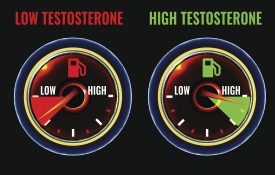-
How We Roll: Study Shows We’re More Lone Wolves Than Team Players
What credo would you choose: “Share and share alike?” or “To each his own”? The choice doesn’t relate only to material goods or socialism versus capitalism. It can also reflect attitudes about how we solve our collective problems, such as affordable access to health care or threats from climate change. Despite the existence of shared resources in our lives—water, air, land, tax dollars—some people will lean into a go-it-alone approach, with each individual deciding for themselves what’s best. Others will look to group decision-making. What’s the tipping point for shifting from maverick to team player?
-

New Research From Psychological Science
A sample of research exploring neural processes underlying attention, collective emotions and resilience, and group-based deprivation and extremist beliefs.
-

How DNA and Testosterone May Affect Men’s Driving
New findings raise the possibility that men with a specific mix of biology and personality traits may be prone to aggressive driving as well as other fiery behavior.
-
Lonely young adults ‘in every kind of neighbourhood’
Academics from King's College London found loneliness was an issue in urban as well as rural areas and in wealthy areas as well as deprived ones. They say loneliness is a particular problem among young adults - regardless of gender or socio-economic background. The study says these adults are more likely to have a negative view of where they live, compounding their isolation. The King's College research says: "The findings of this study reveal that among young adults, loneliness occurs equally within many different types of neighbourhoods, irrespective of urbanicity, population density, deprivation, or crime.
-
Is the Immediate Playback of Events Changing Children’s Memories?
The night of the elementary school talent show, we came home to celebrate with ice cream when my mother took out her iPhone to show a video she’d taken of my 10-year-old daughter’s performance. My daughter had played Ed Sheeran’s “Perfect” on the piano by ear and sang along. Despite her nerves, she got out there in the middle of the stage in a new dress with scattered sequins and sang her best, bowing to an audience of clapping parents before she walked off stage — an expression of relief and pride on her face.
-
Ageism: A ‘Prevalent and Insidious’ Health Threat
It happened about a year ago. I stepped off the subway and spotted an ad on the station wall for a food delivery service. It read: “When you want a whole cake to yourself because you’re turning 30, which is basically 50, which is basically dead.” After a bunch of us squawked about the ad on social media, the company apologized for what it called attempted humor and what I’d call ageism. Maybe you recall another media campaign last fall intended to encourage young people’s participation in the midterm elections. In pursuit of this laudable goal, marketers invoked every negative stereotype of old people — selfish, addled, unconcerned about the future — to scare their juniors into voting.

